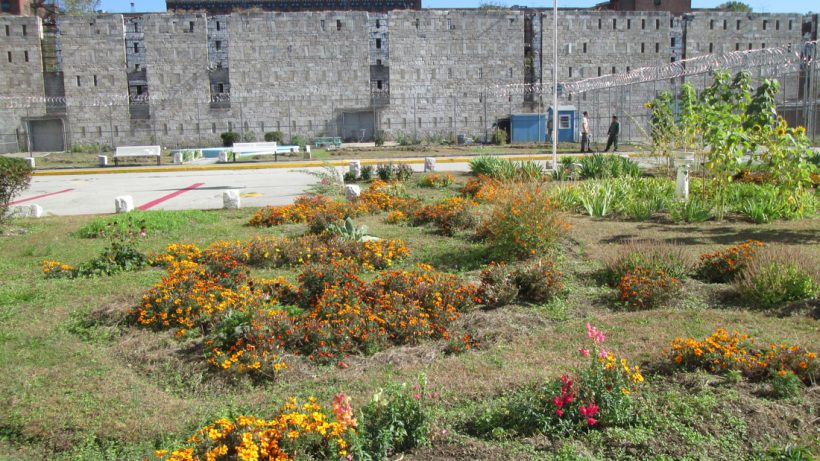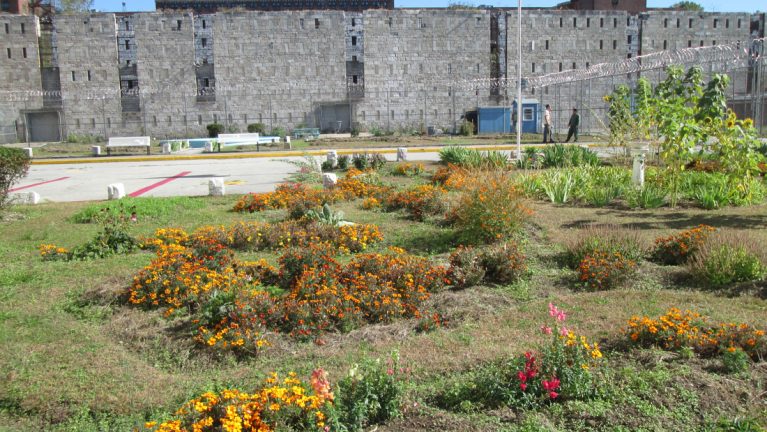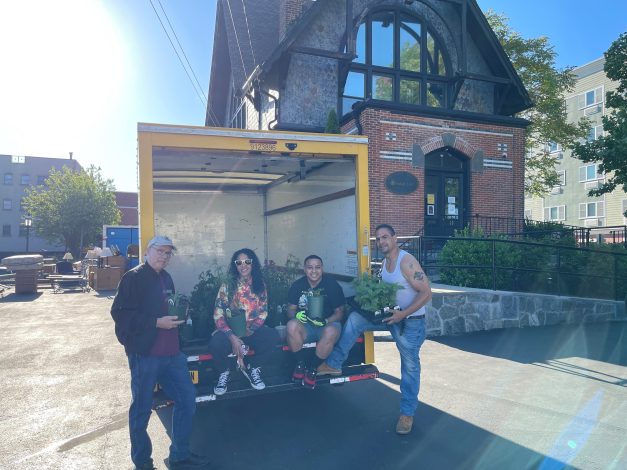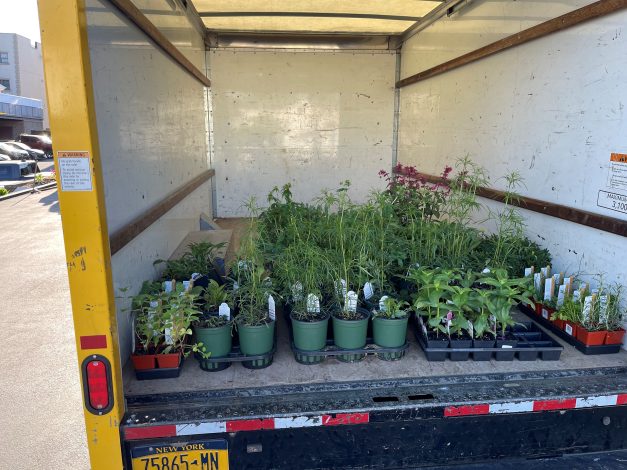The Healing Powers of Gardening at Sing Sing
This year, thousands of plants found new homes in gardens across Westchester County after our annual PlantFest celebration. A few dozen of these plants found their way to a special garden located within the walls of Sing Sing Correctional Facility, to be included in the annual therapy garden that is planted to benefit the men who receive support from the Sing Sing Office of Mental Health. The therapy garden is supported by the Sing Sing Prison Museum, and the deliveries are made possible by alumni of Hudson Link, the Sing Sing college program.
The history of gardening at Sing Sing began more than 100 years ago, when Charles Chapin, an inmate in 1919 requested to oversee the care of a portion of the prison lawn. Chapin vowed that he would “grow roses in that sand pit” and that’s exactly what he did. Chapin, along with a team of about 30 other men, transformed the prison yard from a dusty plot to lush gardens. The garden project received donations of rose bushes, irises, fertilizer, peonies, tulips, lilacs and more from nearby nurseries, and Charles Chapin quickly became known as The Rose Man of Sing Sing.
The gardens within the prison walls are still utilized and maintained today. The original site of the rose garden serves as a therapy garden for men who benefit from the prison’s Office of Mental Health. The therapy gardens are a collective group effort to maintain, and anyone who walks by will benefit from the comforting aroma of lavender, echinacea, and fragrant herbs that were selected specifically as soothing plants for the garden.
There are other garden plots within the prison grounds where men in the “Honor Block” can grow produce under the radar. This informal act of growing plants and produce from seed provides these men with a sense of community and creates bonds. They often share their harvests of fresh tomatoes, okra, squash, and cucumbers, which are typically hard to come by. Sharing fresh fruit and vegetables that were grown from seed promotes a positive community and instills a sense of pride. The access to gardening has shown a decrease in incidents and an increase in community building within the “Honor Block”, further reinforcing that gardening has many therapeutic benefits.
We know there are health many benefits to gardening and spending time in nature. It is encouraging to see this small act of gardening benefit so many individuals within Sing Sing, while the Sing Sing Prison Museum works to deliver new ways of understanding for a fairer future. To learn more, visit www.singsingprisonmuseum.org







Leave a Reply